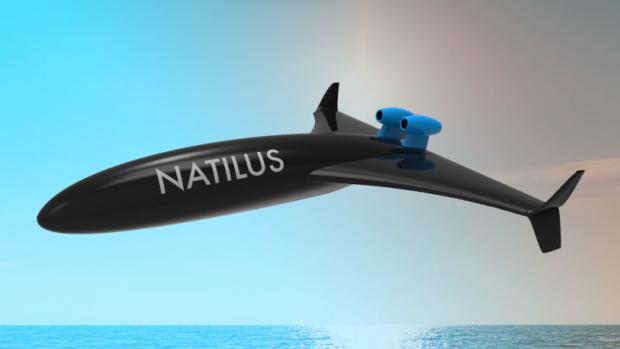
Breaking News
 Bill Maher APOLOGIZES To QAnon!
Bill Maher APOLOGIZES To QAnon!
 Mama's Boy? Sam Bankman-Fried, Represented By His Mother, Files For New Trial In FTX Implosion C
Mama's Boy? Sam Bankman-Fried, Represented By His Mother, Files For New Trial In FTX Implosion C
 China Is Collapsing - The Truth Behind America's Greatest Rival!
China Is Collapsing - The Truth Behind America's Greatest Rival!
 I Tried Extreme Celebrity Biohacks (Here's What Actually Works)
I Tried Extreme Celebrity Biohacks (Here's What Actually Works)
Top Tech News
 Drone-launching underwater drone hitches a ride on ship and sub hulls
Drone-launching underwater drone hitches a ride on ship and sub hulls
 Humanoid Robots Get "Brains" As Dual-Use Fears Mount
Humanoid Robots Get "Brains" As Dual-Use Fears Mount
 SpaceX Authorized to Increase High Speed Internet Download Speeds 5X Through 2026
SpaceX Authorized to Increase High Speed Internet Download Speeds 5X Through 2026
 Space AI is the Key to the Technological Singularity
Space AI is the Key to the Technological Singularity
 Velocitor X-1 eVTOL could be beating the traffic in just a year
Velocitor X-1 eVTOL could be beating the traffic in just a year
 Starlink smasher? China claims world's best high-powered microwave weapon
Starlink smasher? China claims world's best high-powered microwave weapon
 Wood scraps turn 'useless' desert sand into concrete
Wood scraps turn 'useless' desert sand into concrete
 Let's Do a Detailed Review of Zorin -- Is This Good for Ex-Windows Users?
Let's Do a Detailed Review of Zorin -- Is This Good for Ex-Windows Users?
 The World's First Sodium-Ion Battery EV Is A Winter Range Monster
The World's First Sodium-Ion Battery EV Is A Winter Range Monster
 China's CATL 5C Battery Breakthrough will Make Most Combustion Engine Vehicles OBSOLETE
China's CATL 5C Battery Breakthrough will Make Most Combustion Engine Vehicles OBSOLETE
A Startup's Plan To Cut Air Freight Costs In Half With 777-Size Drones

Commercial passenger jets fly at an altitude of around 30,000 feet or higher. Imagine sitting in a window seat of one of those giant aluminum tubes a few years from now as it makes its way across the Pacific Ocean. Picture looking down about 10,000 feet below. You just might see what one startup thinks could be the future of international cargo transport.
The idea is simple: Shipping by air is fast, but expensive. Boat is much cheaper, but very slow. So why not send all those boxes and packages on an un-piloted, amphibious Boeing 777-sized drone that can fly point to point and eventually drop off as much as 200,000 pounds of cargo at a seaside port? It would carry that cargo at about half the cost of normal air freight thanks to a more efficient use of fuel and the lack of an expensive crew.
That's the thinking behind Natilus, a Richmond, California-based startup that this summer plans on flying FAA-approved tests of a 30-foot prototype that's about the size and weight of a military Predator drone. The flight will mark the first significant step toward upending the global freight forwarding industry. Eventually, CEO Aleksey Matyushev says, the company hopes to fly the prototype on 30-hour test runs, carrying up to 700 pounds of cargo, between Los Angeles and Hawaii.
Natilus, which has raised $750,000 from venture capitalist Tim Draper and was incubated at the aviation-oriented Starburst Accelerator in Los Angeles, will power its drones with turboprop and turbofan engines and standard jet fuel, sending them on missions at an altitude of approximately 20,000 feet. That's well below commercial planes, but high enough to be fuel-efficient. Matyushev says trips across oceans would cost about half of what current commercial air freight transport runs, traveling a bit slower than manned cargo aircraft.



